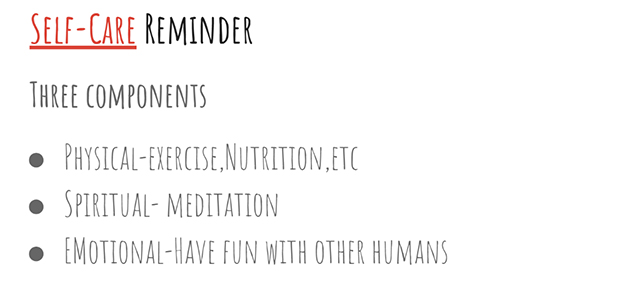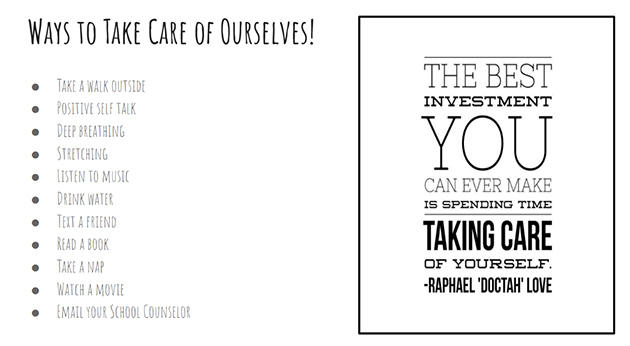
President's Letter: Comprehensive Programs Lead to Wellness
By Melvin Fields | January 2022
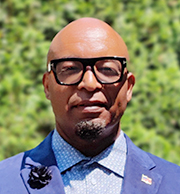 Greetings to all WSCA members as we continue to celebrate this holiday season of giving and spending time with our family and friends during the long winter break as we rest, reflect and recharge.
Greetings to all WSCA members as we continue to celebrate this holiday season of giving and spending time with our family and friends during the long winter break as we rest, reflect and recharge.Physical health and mental health are important factors in the lives of every human being and are key in the development of impactful mindfulness strategies. School counselors play a vital role in the daily operations in schools; therefore, SB 5030 is critically important. It mandates school districts develop and implement comprehensive school counseling programs that clearly define our responsibilities, improving our ability perform our core functions. Our Washington School Counselor Association (WSCA) Annual Conference on March 2-4, 2022 will focus on SB 5030 and provide a wide range of learning opportunities.
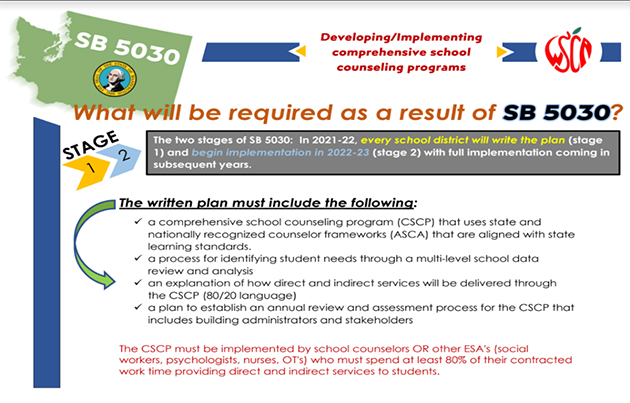
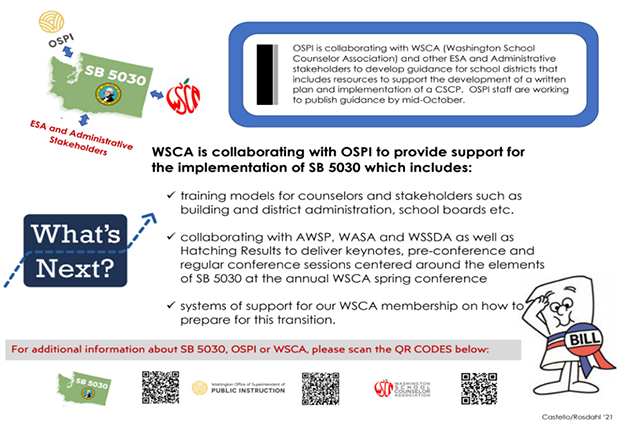
School counselors must have time to fully implement ASCA Student Standards: Mindsets & Behaviors for Student Success K-12 College-, Career- and Life-Readiness Standards for Every Student and teach mindset standards (Category 1). Begin with the first of six mindset standards and teach students a belief in development of whole self, including a healthy balance of mental, social/emotional and physical well-being. Student interventions, homeroom lessons, classroom lessons and restorative practices should all include mindfulness components to help develop those self-regulatory skills. However, the inability to implement our comprehensive school counseling program denies us the opportunity to identify students and introduce them to mindfulness strategies. As professionals, our failure to follow-up with those students with the most need has a negative impact on our mental health because we want to be available for our students.
In response, our district hired additional employees to form wraparound services to expand our reach and increase our availability. Our community outreach specialist assists students and their families with clothing, food and shelter needs. Unfortunately, families continue to struggle with basic needs during COVID-19, which increases student mental health needs due to the continued uncertainty. Our reengagement specialist assists with student attendance, focused on reducing the number of absences by working with families to find solutions. Student absences have increased after our prolonged on-line learning protocols from last year. More students have reported feeling anxious or overwhelmed, providing these feelings as reasons for poor school attendance. Last, our social worker assists with crisis counseling response for students and families identified based on self-referral, peer reporting or teacher concerns.
Students are under an extraordinary amount of stress, and it is important we teach them how to identify triggers, stemming from memories or feelings from the past or present situations. We also teach students how to notice, be aware and be present in the moment. Whether we are conducting individualized counseling or in the classroom, we can incorporate mindfulness strategies such as breathing exercises, visualizations and focus-based meditation. We discuss topics like calmness, focus, kindness and achieving good sleep using varied delivery mechanisms to demonstrate and practice together. Body movement using yoga is another mindfulness strategy to help students recenter and be calm at home or in the classroom, to help ready their focus. Modeling and sharing mindfulness moments with students helps school counselors relax, too, and builds and strengthens relationships.
Contact Melvin Fields, WSCA president, at melvinfieldswsca@gmail.com.
Homeroom Lesson Example
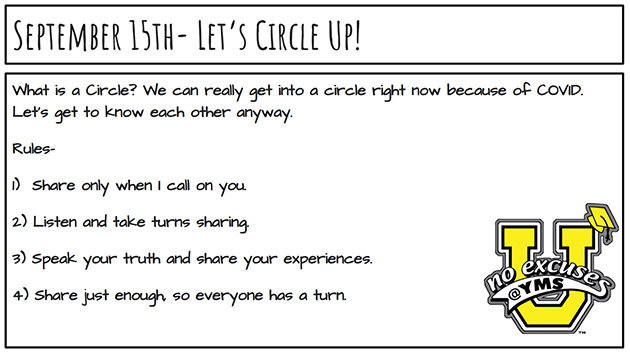
Classroom Lesson Example
